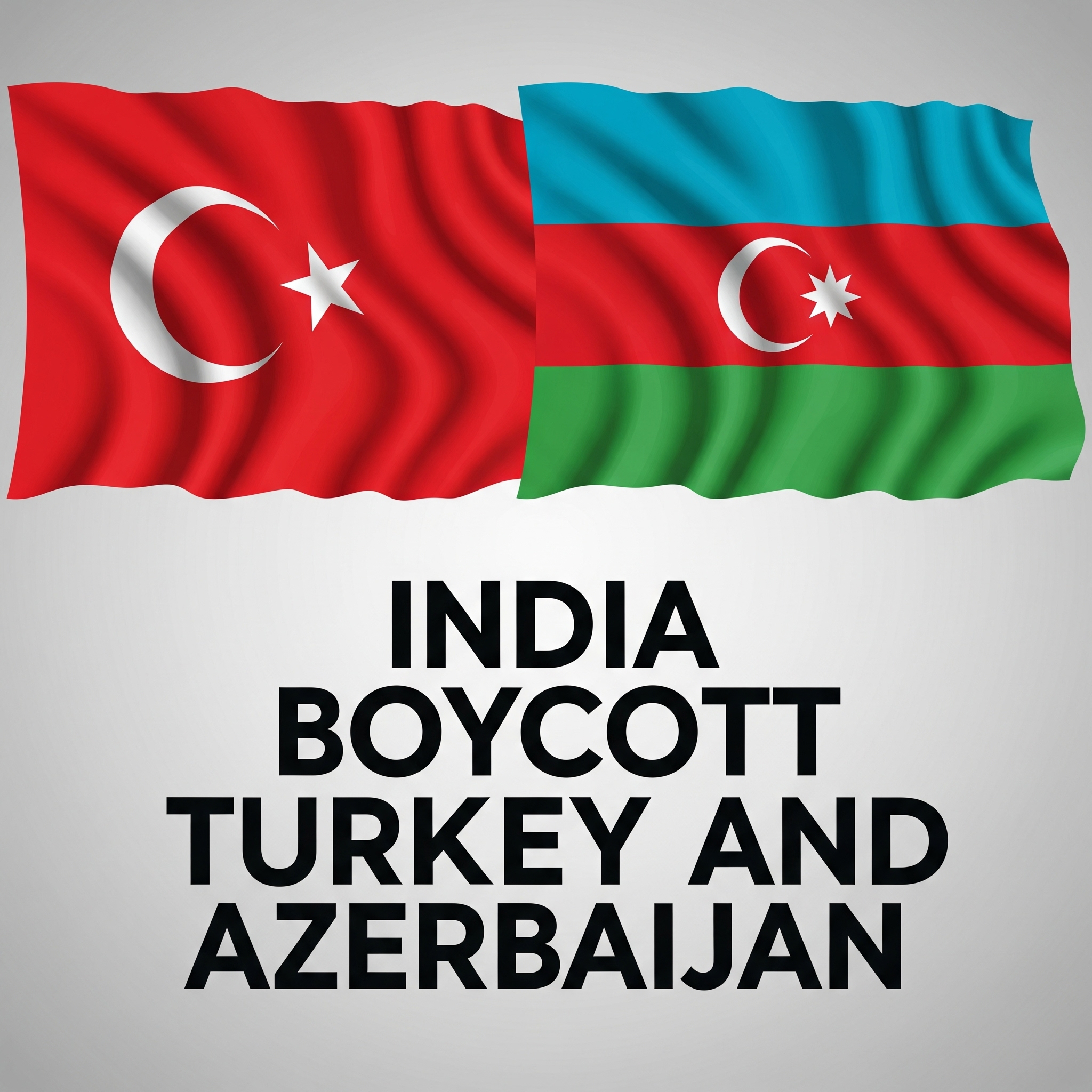India’s Boycott of Turkey and Azerbaijan: A Deep Dive into Economic and Diplomatic Repercussions
Explore the reasons behind India’s boycott of Turkey and Azerbaijan, analyzing the economic and diplomatic impacts of this significant geopolitical development.
Introduction
In May 2025, India initiated a significant boycott against Turkey and Azerbaijan. This move was in response to both nations expressing support for Pakistan following India’s counter-terrorism operations, notably Operation Sindoor, launched after the Pahalgam terror attack. The boycott encompasses trade, tourism, and cultural exchanges, reflecting India’s stance against nations perceived to support terrorism.
Background: Operation Sindoor and International Reactions
Operation Sindoor was India’s military response to the Pahalgam terror attack in April 2025, which resulted in the loss of 26 lives. The operation targeted terror infrastructures in Pakistan and Pakistan-occupied Kashmir. Turkey and Azerbaijan’s subsequent support for Pakistan and criticism of India’s actions led to widespread condemnation within India.
Economic Measures: Trade and Commerce
Trade Statistics
India’s trade relations with Turkey and Azerbaijan have been substantial:
- Turkey: In FY 2022-23, bilateral trade amounted to USD 13.80 billion, with India exporting goods worth USD 6.65 billion and importing USD 3.78 billion.
- Azerbaijan: During 2023-24, India’s exports were valued at USD 28.67 million, while imports stood at USD 1.52 million.
Boycott Actions
In response to the geopolitical tensions, several Indian trade bodies and organizations have taken decisive actions:
- Assam Chamber of Commerce (ACC): Urged traders in Guwahati to cease all trade with Turkey and Azerbaijan.
- All India Consumer Products Distributors Federation (AICPDF): Announced a total boycott of Turkish goods, affecting products such as chocolates, jams, and skincare items.
- Confederation of All India Traders (CAIT): Over 125 trade leaders from 24 states pledged to sever all commercial ties with Turkey and Azerbaijan.
These measures signify a collective effort to leverage economic influence in geopolitical disputes.
Impact on Specific Sectors
Retail and Consumer Goods
The boycott has led to significant changes in the retail sector:
- Fashion Industry: E-commerce platforms like Myntra and AJIO have removed Turkish apparel brands, including Trendyol and LC Waikiki, citing national interest.
- Food Imports: Traders in markets like Mundera Mandi have stopped accepting Turkish apple consignments, shifting demand to domestic and other international sources.
Tourism
The tourism sector has also been affected:
- Travel Cancellations: Online travel platforms like MakeMyTrip and EaseMyTrip reported a 60% decrease in bookings to Turkey and Azerbaijan, with cancellations surging by 250%.
- Tour Operators: Local operators have halted promotions and bookings for trips to Istanbul and Baku, reflecting growing public support for the boycott.
Aviation
The aviation industry has seen contractual changes:
- Airports: Mumbai and Ahmedabad airports, operated by the Adani Group, have canceled ground handling contracts with Turkish firm Çelebi.
- Airlines: Air India is lobbying against IndiGo’s leasing agreement with Turkish Airlines due to concerns about Turkish support for Pakistan.
Cultural and Symbolic Actions
Beyond economic measures, symbolic actions have been taken:
- Jewelry Industry: The All India Gem and Jewellery Domestic Council (GJC) has urged the industry to cease business dealings with Turkey and Azerbaijan.
- Rebranding: Jewellers have decided to stop using the ‘Turkish’ tag for certain ornaments, rebranding them as ‘Sindoor’ in honor of India’s anti-terror operation.
Public Sentiment and Consumer-Led Diplomacy
The boycott reflects a broader trend of consumer-led diplomacy:
- Public Support: Citizens across India have actively participated in the boycott, demonstrating national solidarity.
- Digital Campaigns: Social media platforms have seen widespread campaigns supporting the boycott, amplifying its reach and impact.
Conclusion
India’s boycott of Turkey and Azerbaijan underscores the nation’s commitment to countering support for terrorism through economic and cultural means. The collective actions of trade bodies, businesses, and citizens highlight the power of unified national response in geopolitical matters


0 Comment